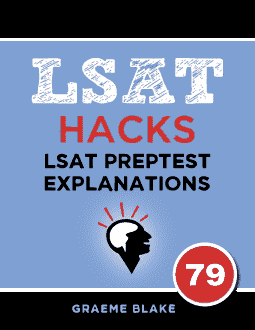QUESTION TEXT: Consumer advocate: Economists reason that price gouging-…
QUESTION TYPE: Role in Argument
CONCLUSION: Economists are wrong. Price gouging won’t get goods to people with the most need.
REASONING: Economists argue that willingness to pay indicates that there is a need. But, willingness to pay isn’t proportional to need.
ANALYSIS: This question is asking about the phrase beginning in “but”. This word indicates the sentence is the author’s own opinion. So, that automatically eliminates C and D.
The author assumes that economists are saying that willingness to pay is proportional to need. In the sentence starting with “but”, the author say this claim by the economists is not correct.
That’s answer E.
Interestingly for a “role in argument”, this is a flawed argument. The consumer advocate misunderstands the economists. The economists weren’t saying that gouging got the goods to people with the most need. They were just saying that willingness to pay a high price indicated some kind of need.
For example, lets say there is a hurricane coming. If retailers can’t raise prices, people might buy supplies “just in case”. But, if prices are up 3x, then presumably most of the people who are buying supplies do need them to some extent. Obviously, the richer will have more access, and they may not have “the most” need. But, high prices are a detterent, and so the economists are probably correct that high prices help get goods to people who need them more. (High prices also encourage more goods to come into an area in a disaster, increasing supply.)
The right answer actually references the author’s mistake by saying “takes to be assumed” rather than “assumed”. So, noting this flaw helps answer it. Though, it’s not essential, and generally “Role in Argument” questions won’t be flawed. By introducing a flawed one, however, LSAC may be trying to mix up old patterns and shake up people who are relying simply on memorizing strategies.
___________
- This didn’t happen.
Example of argument: Economists say that people price gouge because supplies are short. But, I say that people price gouge because they’re greedy! - This is a trap answer. It’s true that “but” often indicates a conclusion. But, you must always approach things with an open mind, and not use rigid rules.
The author is making an implicit conclusion: the author disproves the economists’ premise, and therefore implicitly concludes that they are wrong to say that price gouging is efficient. - No! The word “but” indicates that that sentence is something the author believes.
- No! As with C, the statement in question is something the author agrees with. After all, they said it.
- CORRECT. See the analysis above. The author assumes that economists think “those with the most need get the most goods”. The claim about willingness to pay not being proportional is intended to contradict that claim which the author thinks the economists believe. (They don’t.)

Free Logical Reasoning lesson
Get a free sample of the Logical Reasoning Mastery Seminar. Learn tips for solving LR questions


Can an argument not be the author’s opinion? I got the answer correct but am not sure I wouldn’t choose C on a different day. Can you go into this more?
An argument can be the author’s opinion but that’s not what’s going on in Answer Choice C. C is saying that the sentence is a component of the first sentence, “Economists…price gouging…allocates…willingness…need those goods”. Which is not the case since it’s actually calling the sentence and the economists’ view into question. C says that the author is disputing the sentence when it is actually a core element of the author’s argument against the economists’ view, thus making it wrong.